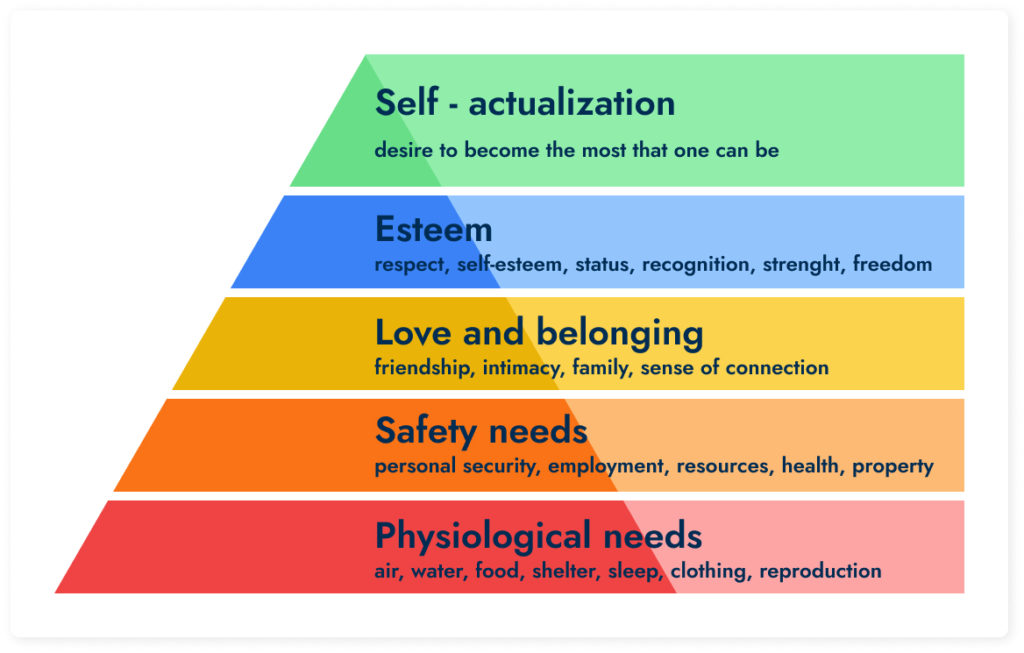A deep dive into Maslow's Hierarchy of Needs and how organisations are focusing on this idea to empower their employees
Great organisations are built by the people who work in them. The organisation’s success is dependent on its employees’ dedication 24 hours a day, seven days a week, 365 days a year.
Organizations are no longer defined by the archaic brick and mortar structures that they used to be, they are now known for their vibrant culture, their diversity, and the overall opportunities they provide for the growth of an employee.
So, what has changed over the years, and how are employers fulfilling their employees’ expectations in an ever-changing global scenario? Well, different companies have taken different approaches to their growth trajectory while taking their employees along, but the underlying factor has been a concept coined decades ago.
The concept, Maslow’s Hierarchy of Needs segregates human needs into a five-tier model, starting from the most basic human desires all the way up to the more complex attainment of human needs.
Let us take a deep dive and understand what Maslow’s Hierarchy of Needs is all about and how organisations are focusing on this theory to empower their employees.
To bring out the best in their employees, any organisation must first ensure that their basic needs are met, and this is where the pyramid begins:
Physiological Needs: Modern organisations not only engage people from 9 to 5 in front of a screen but also provide employees with the means to make their office hours comfortable. Be it tea and snack facilities, availability of clean drinking water and warm food, proper break hours, etc., these small gestures and facilities actually go a long way in positively affecting the physiology of employees.
Safety Needs: An employee, in a job that is temporary in nature, or in a job that does not prioritise health and wellbeing, cannot perform to the best of their abilities. Realizing the importance of stability and providing employee wellbeing, modern organisations are working towards a robust environment where they not only provide a certainty of employment-based performance, but also a well-balanced professional and personal life, comprehensive medical coverage, coverage through government schemes like EPF, ESIC, among others, to ensure that their employees do not have to worry about safety and can perform to the best of their abilities.
Belonging Needs: Belonging needs are the ones that make a person feel loved and welcome. As they say, man is a social animal, and without societal acceptance and connections, a man cannot sustain his life in a balanced way. Modern-day organisations, having realised the importance of catering to this human need, have innovated to provide a warm and welcoming environment for their employees. HR Induction to familiarize with the organizations’ work culture, regular team meetings, team bonding activities, and quarter or year-end meetups are an integral part of the corporate code these days which keep the bond between humans going and re-kindle a sense of belongingness amongst everybody.
Esteem Needs: Perhaps, one of the most essential elements of the theory and one of the most important focal points of organisations is the fulfilment of Esteem needs. Esteem needs include getting due recognition, getting rewards proportionate to work, and having the right status in the hierarchy, among others. To cater to this all-important need, organisations have a well-laid-out rewards and recognition programme, even engaging specialised companies to attain this objective, a well laid-out growth and promotional strategy, and proper acknowledgement of achievements, among others.
Self-Actualisation Needs: The highest level of need attainment for any human is when they realise the true potential of their inner selves. This state of being is much beyond materialistic needs and wants. Organisations by giving their employees the freedom to lead their own projects, implement their own ideas, and create spaces where ideas and feedback flow seamlessly, organisations fulfil their employees’ self-actualization needs.
Thus, behind the growth of modern organisations and the creation of an environment of trust and care, lies the fundamental pyramid of human needs, which, when fulfilled to their true potential, bring out the best in employees and go a long way in building a sustainable business model, that keeps values at its core philosophy.



